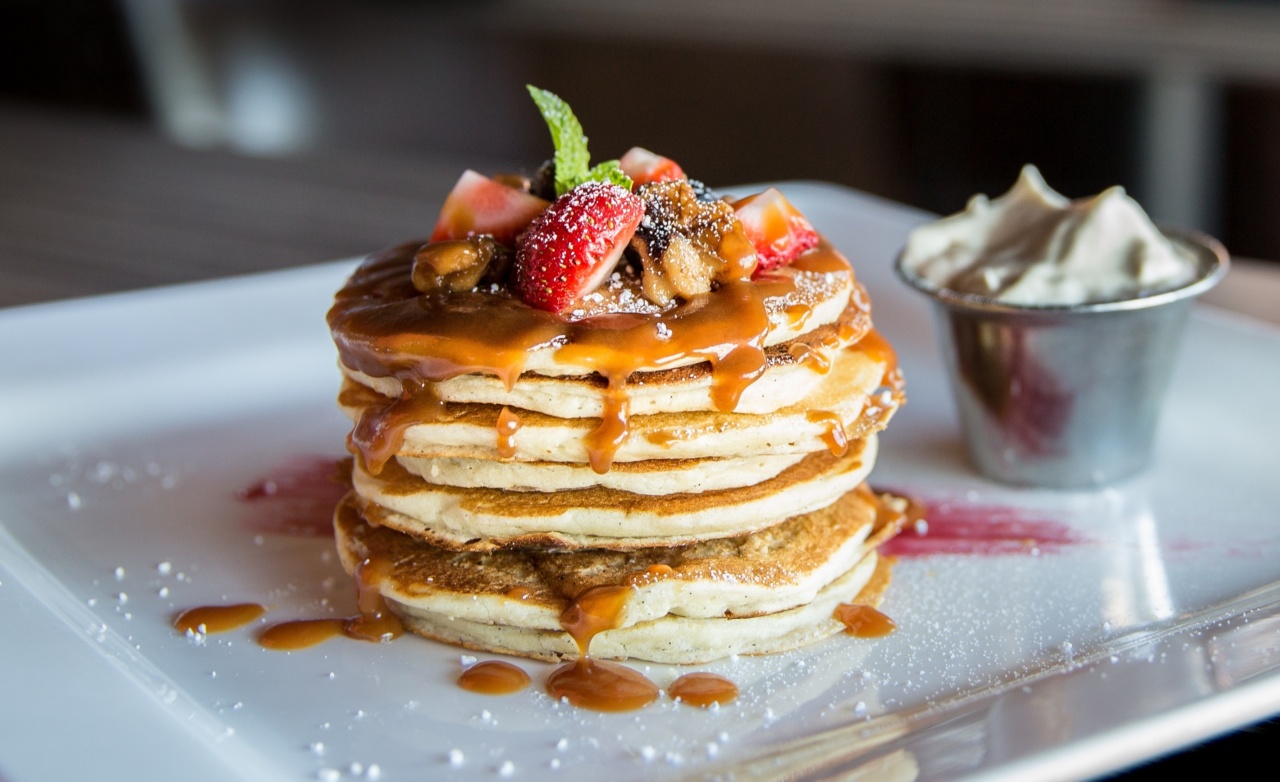When it comes to indulging in something sweet, many of us turn to syrup as a go-to topping. Whether it’s drizzling maple syrup over pancakes or pouring caramel syrup onto ice cream, these sugary treats can certainly satisfy our cravings.
However, consuming excessive amounts of sweet syrup can have a detrimental impact on our heart health.
The Sugar-Rich Culprit
Sweet syrups are packed with sugar, which is the main culprit behind their damaging effects on the heart.
Sugar, particularly in the form of fructose, has been linked to an increased risk of various heart issues, including heart disease, high blood pressure, and obesity.
The Link Between Sugar and Heart Disease
Research has shown a clear link between the excessive consumption of sugar and heart disease. When we consume sugar-rich syrups, our bodies quickly absorb the sugar, leading to a rapid increase in blood glucose levels.
This spike in blood sugar triggers a release of insulin, which helps transport sugar into our cells for energy production.
However, a diet high in sugar puts an immense strain on our bodies. Over time, this can lead to insulin resistance, a condition where our cells no longer respond properly to insulin.
As a result, our bodies produce even more insulin to compensate, which can lead to a host of health problems, including heart disease.
The Impact on Blood Pressure
In addition to the dangers of sugar on heart disease, sweet syrups can also have a negative impact on blood pressure.
It has been observed that individuals who consume high amounts of added sugars, such as those found in syrups, are more likely to have elevated blood pressure levels.
Excessive sugar intake can lead to weight gain, which is a known risk factor for high blood pressure. Moreover, the fructose in sugar has been found to increase uric acid levels in the blood, which can contribute to hypertension.
Syrup and Obesity
Obesity is a significant risk factor for heart disease, and the overconsumption of sweet syrup can contribute to weight gain and obesity development. Syrups are high in calories, and they offer minimal nutritional value.
This means that consuming them regularly can lead to an energy imbalance, where our calorie intake surpasses our energy expenditure.
Furthermore, sugary syrups can also lead to an increased craving for more sweets, creating a vicious cycle of sugar consumption.
This constant intake of sugar makes it harder to maintain a healthy weight, increasing the risk of obesity and all the associated heart problems.
The Hidden Dangers of Artificial Sweeteners
Many people turn to artificial sweeteners as a healthier alternative to sugar-rich syrups. However, artificial sweeteners come with their own set of risks.
Research has shown that these substitutes can lead to adverse health effects, including an increased risk of heart disease.
Artificial sweeteners may disrupt the delicate balance of our gut microbiota, which plays a crucial role in various aspects of our health, including heart health.
Additionally, some artificial sweeteners have been associated with increased cravings for sugary foods and beverages, further contributing to the development of heart disease.
Taking Control of Your Heart Health
To protect your heart from the damaging effects of sweet syrups, it’s essential to make healthier choices. Consider these strategies:.
1. Natural Sweeteners
Opt for natural sweeteners, such as raw honey or pure maple syrup, which offer some nutritional benefits compared to refined sugars. While they should still be consumed in moderation, these natural options provide additional antioxidants and nutrients.
2. Read the Labels
Always read the labels before purchasing syrups or any other sweetened products. Look for added sugars and artificial sweeteners in the ingredients list.
Avoid products with lengthy lists of additives and opt for those with minimal sweeteners or no added sugars.
3. Portion Control
When using sweet syrups, practice portion control. Instead of drowning your food in syrup, use smaller amounts to enhance the flavor without going overboard on the sugar content.
4. Seek Alternatives
Explore healthier alternative toppings for your favorite treats. Fresh fruits, nut butter, or a sprinkle of cinnamon can add natural sweetness and flavor without the detrimental effects on your heart.
5. Be Mindful of Hidden Sugars
Be aware of hidden sugars in processed foods and drinks. Many unsuspecting products, such as condiments, fruit juices, and flavored yogurts, contain high amounts of added sugars.
Limiting your consumption of these hidden sugars can go a long way in protecting your heart.
6. Balanced Diet and Exercise
Maintaining a balanced diet and an active lifestyle are key components of heart health. Aim for a diet rich in fruits, vegetables, whole grains, lean proteins, and healthy fats.
Regular exercise can help manage weight, reduce blood pressure, and support overall cardiovascular well-being.
Conclusion
While sweet syrups may seem harmless in small quantities, their excessive consumption can pose serious risks to our heart health.
The combination of high sugar content, potential weight gain, and the negative impact on blood pressure all contribute to an increased risk of heart disease. By being mindful of our syrup intake and making healthier choices, we can protect our hearts and enjoy a truly sweet and heart-healthy life.


























